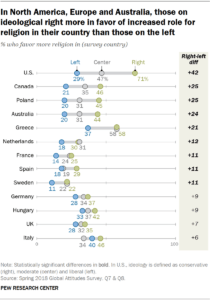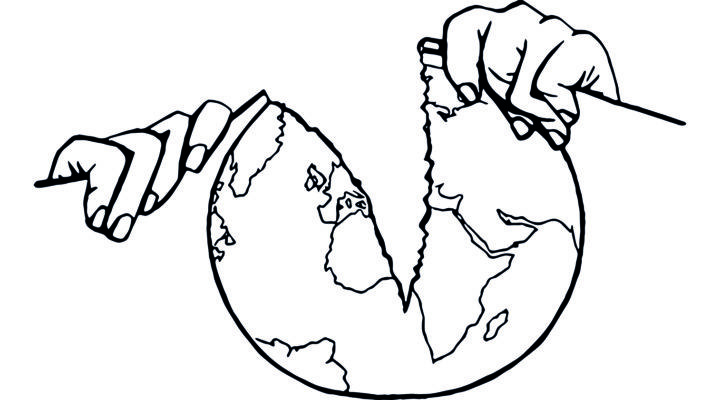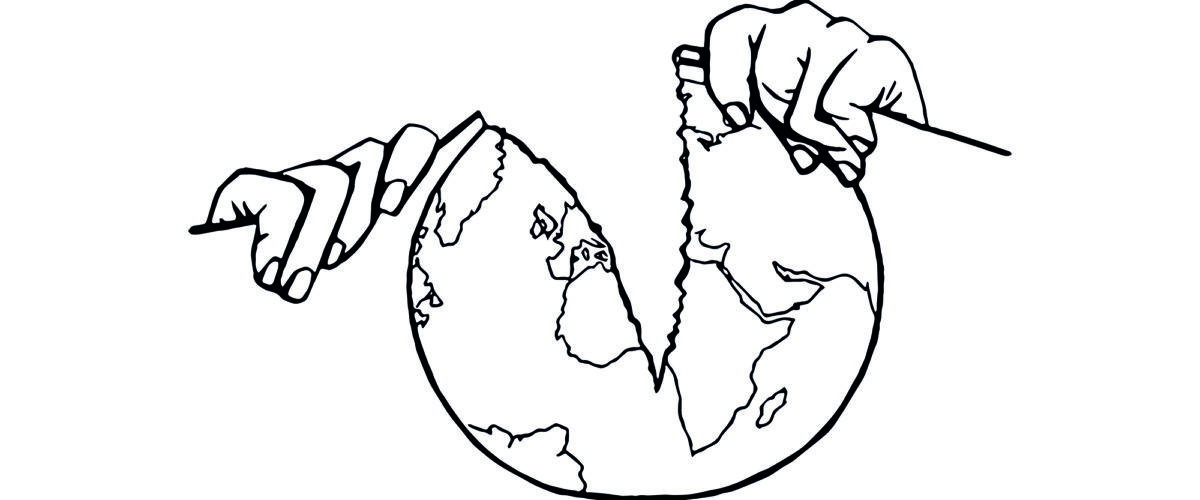Americans increasingly have become known for what divides rather than unites them, but it turns out Americans aren’t alone in this disunity.
Citizens in other parts of the world, including many industrialized nations, believe their societies have become increasingly divided particularly as a result of the pandemic.
“While a median of 34% feel more united, about six in 10 report that national divisions have worsened since the outbreak began,” Pew Research said in an online summary of its latest findings. “In 12 of 13 countries surveyed in both 2020 and 2021, feelings of division have increased significantly, in some cases by more than 30 percentage points.”
 One of the chief sources of disagreement among populations globally centers on the health and safety restrictions governments imposed in response to the coronavirus outbreak. These included mandatory mask wearing, social distancing and stay-at-home orders.
One of the chief sources of disagreement among populations globally centers on the health and safety restrictions governments imposed in response to the coronavirus outbreak. These included mandatory mask wearing, social distancing and stay-at-home orders.
“Overall, about four in 10 express the opinion that over the course of the pandemic, the level of restrictions on public activity has been about right,” Pew reported. “A nearly equal share believes there should have been more restrictions to contain the virus. A minority in most publics think there should have been fewer restrictions.”
Americans were among the most divided on this issue, with 56% wanting more limits, 26% wanting fewer and only 17% believing “the restrictions were about right.” Canada was close to those numbers with the breakdown being 53% wanting more, 18% wanting less and 27% being satisfied.
Among European countries like Greece, the Netherlands, Italy, Belgium and Germany, higher percentages of adults expressed satisfaction with COVID-19 measures while somewhat evenly split groups disagreed over whether more, or less, were needed.
The Pew survey also found that closely held belief systems often fuel divisions in societies. “Ideologically, in most nations, those who identify on the right of the political spectrum are more likely than those on the left to support fewer restrictions to contain the virus.”
Ideology has been the culprit in the growing gulf between Americans, as numerous surveys, articles and books have found. For example, a mid-January CBS News poll reported that 56% of U.S. adults believe “other people in America” are the biggest threat to national unity.
Experts are increasingly tracking the rise of Christian nationalism and white supremacy in the United States and identifying it as a primary source of antagonism between Americans, sometimes violently so.
“As the nation looks back on the first official federal commemoration of Juneteenth and looks forward to the Fourth of July, it is clear that the new battle lines in the culture wars are less about social issues and more about American identity itself,” the Public Religion Research Institute and Baptist Joint Committee for Religious Liberty said in promoting a July 1 webinar co-sponsored by the two organizations. “At its heart, this struggle is between two incompatible visions of America: one forwarding a myth of white racial innocence and the norm of a white Christian nation vs. another committed to a more critical history in the service of a multi-ethnic, multi-religious democracy.”
 But previous research shows similar impulses exist around the globe, as well, with increasing numbers of conservatives demanding a greater religious influence in public life, Pew reported. “In Europe, North America and Australia, ideology is linked to whether people want a more prominent role for religion in their country.”
But previous research shows similar impulses exist around the globe, as well, with increasing numbers of conservatives demanding a greater religious influence in public life, Pew reported. “In Europe, North America and Australia, ideology is linked to whether people want a more prominent role for religion in their country.”
While the U.S. was way out in front on that metric, with 71% of those on the political right favoring more power for religion in society, “substantial differences exist between left and right in many countries,” Pew said.
And in Europe, Pew discovered that members of right-wing populist parties are far more likely to view diversity as unfavorable. “The difference is especially pronounced in Sweden: Only 24% of people who favor the Sweden Democrats are in favor of a more diverse citizenry, compared with 73% of people with an unfavorable view of the party.”
In its survey about the divisive impact of the COVID-19 pandemic, Pew found further disagreements in many nations of the economic impact of the virus, a trend that is tied to ideological leanings
“A median of 46% say that their economy is recovering from the effects of the coronavirus outbreak in ways that show the strengths of the economic system,” Pew explained. “A nearly equal proportion instead believe that their economy failing to recover highlights weaknesses in their economy on the whole. This negative view is more prevalent among those who wanted fewer restrictions during the pandemic.”
Related articles:
Social liberalism grows while economic conservatism still dominates
What I’ve learned about agreeing to disagree in contentious times | Opinion by Rob Sellers
New surveys connect the dots between politics, race, religion and vaccination
From religion to immigration to COVID, Fox News creates divisions even among Republicans


